Articles and Company News
We aim to keep our clients up-to-date with news and relevant opinions which concern your finances. Our regular email bulletin is designed to inform and share views with our members.
2020
RBA Media Release, July 2020
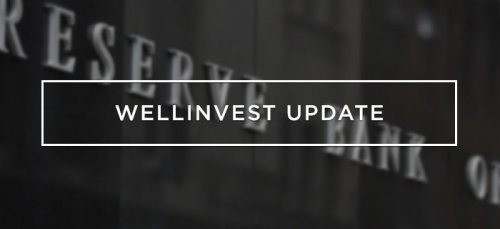
Statement by Philip Lowe, Governor: Monetary Policy Decision
At its meeting today, the Board decided to maintain the current policy settings, including the targets for the cash rate and the yield on 3-year Australian Government bonds of 25 basis points.
The global economy has experienced a severe downturn as countries seek to contain the coronavirus. Many people have lost their jobs and there has been a sharp rise in unemployment. Leading indicators have generally picked up recently, suggesting the worst of the global economic contraction has now passed. Despite this, the outlook remains uncertain and the recovery is expected to be bumpy and will depend upon containment of the coronavirus. Over the past month, infection rates have declined in many countries, but they are still very high and rising in others.
Globally, conditions in financial markets have improved. Volatility has declined and there have been large raisings of both debt and equity. The prices of many assets have risen substantially despite the high level of uncertainty about the economic outlook. Bond yields remain at historically low levels.
In Australia, the government bond markets are operating effectively and the yield on 3-year Australian Government Securities (AGS) is at the target of around 25 basis points. Given these developments, the Bank has not purchased government bonds for some time, with total purchases to date of around $50 billion. The Bank is prepared to scale-up its bond purchases again and will do whatever is necessary to ensure bond markets remain functional and to achieve the yield target for 3-year AGS. The yield target will remain in place until progress is being made towards the goals for full employment and inflation.
The Bank's market operations are continuing to support a high level of liquidity in the Australian financial system. Authorised deposit-taking institutions are continuing to draw on the Term Funding Facility, with total drawings to date of around $15 billion. Further use of this facility is expected over coming months.
The Australian economy is going through a very difficult period and is experiencing the biggest contraction since the 1930s. Since March, an unprecedented 800,000 people have lost their jobs, with many others retaining their job only because of government and other support programs. Conditions have, however, stabilised recently and the downturn has been less severe than earlier expected. While total hours worked in Australia continued to decline in May, the decline was considerably smaller than in April and less than previously thought likely. There has also been a pick-up in retail spending in response to the decline in infections and the easing of restrictions in most of the country.
Notwithstanding the signs of a gradual improvement, the nature and speed of the economic recovery remains highly uncertain. Uncertainty about the health situation and the future strength of the economy is making many households and businesses cautious, and this is affecting consumption and investment plans. The pandemic is also prompting many firms to reconsider their business models. As some businesses rehire workers as demand returns, others are restructuring their operations.
The substantial, coordinated and unprecedented easing of fiscal and monetary policy in Australia is helping the economy through this difficult period. It is likely that fiscal and monetary support will be required for some time.
The Board is committed to do what it can to support jobs, incomes and businesses and to make sure that Australia is well placed for the recovery. Its actions are keeping funding costs low and supporting the supply of credit to households and businesses. This accommodative approach will be maintained as long as it is required. The Board will not increase the cash rate target until progress is being made towards full employment and it is confident that inflation will be sustainably within the 2–3 per cent target band.
2020
RBA Media Release, June 2020
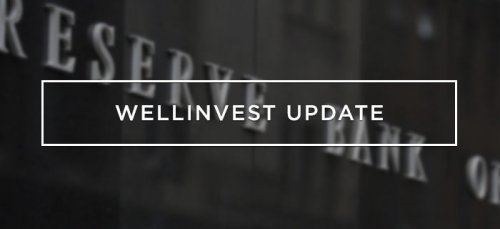
Statement by Philip Lowe, Governor: Monetary Policy Decision
At its meeting today, the Board decided to maintain the current policy settings, including the targets for the cash rate and the yield on 3-year Australian Government bonds of 25 basis points.
The global economy is experiencing a severe downturn as countries seek to contain the coronavirus. Many people have lost their jobs and there has been a sharp rise in unemployment. Over the past month, infection rates have declined in many countries and there has been some easing of restrictions on activity. If this continues, a recovery in the global economy will get under way, supported by both the large fiscal packages and the significant easing in monetary policies.
Globally, conditions in financial markets have continued to improve, although conditions in some markets remain fragile. Volatility has declined and credit markets have progressively opened to more firms. Bond rates remain at historically low levels.
In Australia, the government bond markets are operating effectively and the yield on 3-year Australian Government Securities (AGS) is at the target of around 25 basis points. Given these developments, the Bank has purchased government bonds on only one occasion since the previous Board meeting, with total purchases to date of around $50 billion. The Bank is prepared to scale-up its bond purchases again and will do whatever is necessary to ensure bond markets remain functional and to achieve the yield target for 3-year AGS. The target will remain in place until progress is being made towards the goals for full employment and inflation.
The Bank's market operations are continuing to support a high level of liquidity in the Australian financial system. Authorised deposit-taking institutions are making use of the Term Funding Facility, with total drawings to date of around $6 billion. Further use of this facility is expected over coming months.
The Australian economy is going through a very difficult period and is experiencing the biggest economic contraction since the 1930s. In April, total hours worked declined by an unprecedented 9 per cent and more than 600,000 people lost their jobs, with many more people working zero hours. Household spending weakened very considerably and investment plans are being deferred or cancelled.
Notwithstanding these developments, it is possible that the depth of the downturn will be less than earlier expected. The rate of new infections has declined significantly and some restrictions have been eased earlier than was previously thought likely. And there are signs that hours worked stabilised in early May, after the earlier very sharp decline. There has also been a pick-up in some forms of consumer spending.
However, the outlook, including the nature and speed of the expected recovery, remains highly uncertain and the pandemic is likely to have long-lasting effects on the economy. In the period immediately ahead, much will depend on the confidence that people and businesses have about the health situation and their own finances.
The substantial, coordinated and unprecedented easing of fiscal and monetary policy in Australia is helping the economy through this difficult period. It is likely that this fiscal and monetary support will be required for some time.
The Board is committed to do what it can to support jobs, incomes and businesses and to make sure that Australia is well placed for the recovery. Its actions are keeping funding costs low and supporting the supply of credit to households and businesses. This accommodative approach will be maintained as long as it is required. The Board will not increase the cash rate target until progress is being made towards full employment and it is confident that inflation will be sustainably within the 2–3 per cent target band.
2020
RBA Media Release, May 2020
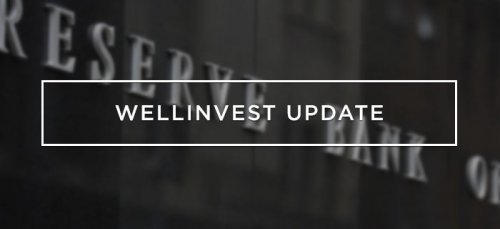
Statement by Philip Lowe, Governor: Monetary Policy Decision
At its meeting today, the Board decided to maintain the current policy settings, including the targets for the cash rate and the yield on 3-year Australian Government bonds of 25 basis points.
The global economy is experiencing a severe downturn as countries seek to contain the coronavirus. Many people have lost their jobs and a sharp rise in unemployment is occurring. At the same time, the containment measures have reduced infection rates in a number of countries. If this continues, a recovery in the global economy will start later this year, supported by both the large fiscal packages and the significant easing in monetary policies.
Globally, financial markets are working more effectively than they were a month ago, although conditions have not completely normalised. This improvement reflects both the decline in infection rates and the substantial measures undertaken by central banks and fiscal authorities. Credit markets have progressively opened to more firms and long-term bond rates remain at historically low levels.
In Australia, the functioning of the government bond markets has improved and the yield on 3-year Australian Government Securities (AGS) is at the target of around 25 basis points. Given these developments, the Bank has scaled back the size and frequency of bond purchases, which to date have totalled around $50 billion. The Bank is prepared to scale-up these purchases again and will do whatever is necessary to ensure bond markets remain functional and to achieve the yield target for 3-year AGS. The target will remain in place until progress is being made towards the goals for full employment and inflation.
The Bank's daily open market operations are continuing to support credit and maintain low funding costs in the economy. To assist with the smooth functioning of Australia's capital markets, the Bank has decided to broaden the range of eligible collateral for these operations to include Australian dollar securities issued by non-bank corporations with an investment grade credit rating. More details are provided in the accompanying market notice.
The Australian economy is going through a very difficult period and there is considerable uncertainty about the outlook. Reflecting this uncertainty, the Board considered a range of scenarios at its meeting. In the baseline scenario, output falls by around 10 per cent over the first half of 2020 and by around 6 per cent over the year as a whole. This is followed by a bounce-back of 6 per cent next year.
There has been a substantial, coordinated and unprecedented fiscal and monetary response in Australia to the coronavirus. Without this response, the outlook would have been even more challenging. These policies are supporting the economy right now and will help when the recovery comes. They are supporting people's incomes, maintaining the important connections between businesses and their employees, underpinning the supply of credit to businesses and households, and keeping borrowing costs low. The deferral of loan and other payments is helping people manage their cash flows. The Australian banking system, with its strong buffers of capital and liquidity, is also helping the economy traverse this difficult period.
In the baseline scenario considered by the Board, the unemployment rate peaks at around 10 per cent over coming months and is still above 7 per cent at the end of next year. A lower unemployment rate than this is possible if the reduction in labour demand is accompanied by a larger reduction in average hours worked, rather than by people losing their jobs.
The Board also considered other scenarios. A stronger economic recovery is possible if there is further substantial progress in containing the coronavirus in the near term and there is a faster return to normal economic activity. On the other hand, if the lifting of restrictions is delayed or the restrictions need to be reimposed or household and business confidence remains low, the outcomes would be even more challenging than those in the baseline scenario. These scenarios will be discussed in the Statement on Monetary Policy, to be released later this week.
In the various scenarios considered by the Board, inflation remains below 2 per cent over the next few years. In the March quarter just passed, CPI inflation rose to 2.2 per cent, but it is expected to turn negative temporarily in the June quarter, due to falls in oil prices, the introduction of free child care and deferrals of various price increases. Further out, in the baseline scenario inflation is 1 to 1½ per cent in 2021 and gradually picks up further from there.
Given this outlook, the Bank will maintain its efforts to keep funding costs low in Australia and credit available to households and businesses. The Board is committed to do what it can to support jobs, incomes and businesses during this difficult period and to make sure that Australia is well placed for the expected recovery. The Board will not increase the cash rate target until progress is being made towards full employment and it is confident that inflation will be sustainably within the 2–3 per cent target band.
2020
What happens next..?

The correct answer is “we don’t know.” No one does.
Let’s guess – we may as well, in the absence of any intelligent analysis.
Share prices are down.
We know that.
But unless we are about to cash in our shares, does it matter? They aren’t down because the companies are out of business – though many may be struggling. Share prices in fact reflect anticipated future company earnings – that is, profitability – and that could mean this year’s profitability or that in ten years’ time.
You could say that the buyers are the optimists, and figure their expectations of future profitability into their preparedness to buy the shares.
Sellers, on the other hand, may be pessimistic about the same company shares, or may have a different time-frame for their expectations.
So what do we learn from this?
Once again, the lesson is – “It’s all about Income.” But, then again, why are we investing? As our Client, we assume you are investing for your financial security – in most cases this means to be debt-free and have an adequate lifetime income-stream (ie a pension).
Well, – and stating the obvious – its not about gambling on share-price increases. (Did someone say ‘Which increases?”)
Whilst there’s never any absolute certainty of outcome, both reason and history have clearly demonstrated that the best chance of reliability of a consistent and growing income-stream is that which flows from a well-managed, reasonably diversified, Australian share portfolio – ideally within one or more managed funds such as those that have for many years made up the Superannuation and Pension funds of our many Clients.
Australian Shares. Managed Funds. Add to these, the (generally unrecognised) benefit of Imputation Credits that enhance your income-return, and we have a potent formula for seeing us – and our savings – through whatever the future holds.
With the right investments, we can have cause for optimism.
Here’s to a Covid-free future.
2020
Australian Government Benefits

To help you navigate the Government benefits available as a consequence of Covid-19, here's a breakdown of the latest Australian Government announcements.
JobKeeper
Applications now open. Main criteria business income reduced by at least 30%.
$100,000 Cash Flow Boost
Main criteria business income reduced by at least 30% and pays wages.
Instant Asset Write-Off Accelerated Depreciation
Main criteria acquired and installed between 12th March 2020 and 30th June, 2021.
Lease Code of Conduct
Commercial and Retail Lease Code of Conduct
Bank Loans
Bank Loans and rearrangements may apply depending on your bank (subject to conditions).
NSW Covid-19 Small Business Support Grant
$10,000 NSW Covid-10 Small Business Support Grant applications open 17th April, 2020 and close 1st June, 2020.
The key criteria is a 75% decline in turnover.
City of Sydney Council Small Business Grant
$10,000 City of Sydney Council Small Business Grant applications are now open and close on 27th April, 2020 (subject to conditions).
Exporters
Exporters affected by Covid-19 may be eligible for finance.
Landlords
Eligible landlords can apply for NSW Land Tax reduction (up to 25%) of their 2020 Land Tax liability on NSW properties (subject to conditions).
Payroll Tax
A Payroll Tax discount of 25% or deferral may apply to employers with Grouped Australian wages (subject to conditions).
NSW Fees and Charges
Removal and/or deferral of various industry fees and charges in NSW (subject to conditions).
Superannuation
Access to $10,000 of your superannuation before 30th June, 2020 and $10,000 after 30th June, 2020 (subject to conditions).
Some benefits and concessions also apply depending on your region.
Please call us if we can help in any way on (02) 9476 2200 or contact us here.
Your financial security is our concern.
2020
RBA Media Release, April 2020
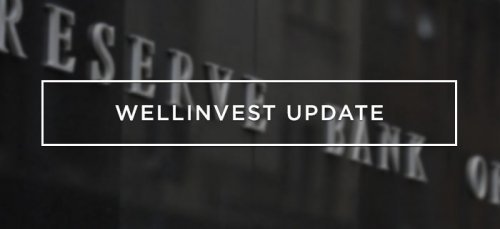
Statement by Philip Lowe, Governor: Monetary Policy Decision
At its meeting today, the Board reaffirmed the targets for the cash rate and the yield on 3-year Australian government bonds of 25 basis points, as well as the other elements of the package announced on 19 March 2020.
The coronavirus remains first and foremost a very major public health issue, but it is also having very significant effects on economies and financial systems around the world. Many countries are expected to experience large economic contractions as a consequence of the public health response. Large increases in unemployment are also expected. Once the virus is contained, a recovery in the global economy is expected, with the recovery supported by both the large fiscal packages and the significant easing in monetary policy that has taken place.
Financial market volatility has been historically high and many markets around the world have been dislocated. There are, however, some signs that markets are working more effectively than they were a few weeks ago. This improvement partly reflects the substantial measures undertaken by central banks.
In Australia, the yield on 3-year Australian Government bonds is now around the target level set by the Board and the functioning of the government bond markets has improved. The Bank will do what is necessary to achieve the 3-year yield target, with the target expected to remain in place until progress is being made towards the goals for full employment and inflation. Since this target was introduced, the Bank has bought around $36 billion of government bonds in secondary markets, including bonds issued by the states and territories. The Bank will continue to promote the smooth functioning of these important markets. If conditions continue to improve, though, it is likely that smaller and less frequent purchases of government bonds will be required.
The Bank has injected substantial liquidity into the financial system through its daily open market operations to support credit and maintain low funding costs in the economy. It will continue to ensure that the financial system has sufficient liquidity. Given the substantial liquidity that is already in the system and the commencement of the Term Funding Facility, the daily open market operations are likely to be on a smaller scale in the near term. Operations at longer terms will continue, but the frequency of these operations will be adjusted as necessary according to market conditions.
The first drawings under the Term Funding Facility were made yesterday. This facility will help lower funding costs across the banking system and provides an incentive for lenders to support credit to businesses, especially small and medium-sized businesses. Authorised deposit-taking institutions have access to at least $90 billion in funding under this facility.
There is considerable uncertainty about the near-term outlook for the Australian economy. Much will depend on the success of the efforts to contain the virus and how long the social distancing measures need to remain in place. A very large economic contraction is, however, expected to be recorded in the June quarter and the unemployment rate is expected to increase to its highest level for many years.
The coordinated monetary and fiscal response, together with complementary measures taken by Australia's banks, will soften the expected contraction and help ensure that the economy is well placed to recover once the health crisis has passed and restrictions are removed. These various responses are providing considerable support to Australian households and businesses through what is a very difficult period. The Australian financial system is resilient. It is well capitalised and in a strong liquidity position, with these financial buffers available to be drawn down if required to support the economy.
The Board is committed to doing what it can to support jobs, incomes and businesses as Australia deals with the coronavirus. The comprehensive policy package announced last month will also support the expected recovery. The Board will not increase the cash rate target until progress is being made towards full employment and it is confident that inflation will be sustainably within the 2–3 per cent target band.
The Board wishes the best to all Australians as our country deals with this very difficult situation.
2020
The Next Virus

Beware of the Next Virus... It’s Coming!
The Corona Virus is the forerunner. This one is unavoidable! It will infect every living soul, no exceptions. It’s not fatal, but it is potentially disastrous.
It is a direct consequence of the Corona Virus, and no-one can escape this one.
Where is this horror-virus coming from?
We are breeding it. Deliberately. Here in Australia. So is every other country in the World.
Why? How? What is it?
As we know, our government - and governments everywhere - are embarking on “economic stimulus packages” to counter the disastrous effects of the current pandemic.
This is commendable and necessary.
However, it means one thing: they are spending money. But it's money they don’t have! They will have to print it!
This translates to one inevitable result: a highly infective economic virus.
It’s called INFLATION.
Inflation means RISING PRICES - of everything. Your Cash will lose value. Your money will buy less at the shops. Everything will cost more.
You will be poorer - inevitably.
Australia has enjoyed almost three decades of economic prosperity and negligible Inflation.
No doubt, we are well placed to weather the economic storm, but - unavoidably - the price will be high inflation - the disease of the 1970’s and 1980’s, but this outbreak will likely be worse.
Here’s the Question
Is Cash (in the bank, or under the bed, or in your SuperFund) the safest asset?
Interest rates are the lowest in living memory and are destined to fall further. Couple this fact with the government’s printing money and we have a potent formula for personal financial disaster.
The Lesson - The Safeguard
Do not be tempted to turn your investment assets - whatever they are - into Cash.
Inflation means that you will need more cash to pay for goods and services, certainly. But equally, you’ll need more cash to buy shares and real estate. They - notwithstanding the present (and future) volatility - will hold, and increase their value.
From past experience, real property - that is, shares and real estate, and not cash - will prove to be the safe haven for your investments.
In summary, we know the economic virus is coming, but - to the wise and the practical - and the faithful - we can avoid infection.
Cash is certainly not the medicine. Cash could be the problem.
Please call us if you have any concerns on (02) 9476 2200 or contact us here.
Your financial security is our concern.
2020
Who’s not worried - about their investments, their life savings?

Well, correct that everyone is concerned - and should be. After all, in our lifetimes, at least, we’ve never experienced the current situation.
But who should be concerned about their investments?
Answer: They whose investments are structured to rely on Capital Growth - as are 95% of holders of Superannuation or Pension Funds.
The present ‘market downturn’ is a potential calamity for those folks.
For SuperFund holders, at least they have time on their side - given the market recovers before they reach retirement. If not, well...
But for Pension holders it’s a tragically different story. Today, they are having to draw down on their capital, at a time when their capital has shrunk, and they face the real risk of exhausting their capital. No more capital means no more Income (other than CentreLink).
So, where do you stand - whether retired or not?
In a few words; if your have listened - and acted - on our advice over the past few years, your investments are as safe as they could be, especially throughout periods such as the present, because they are structured essentially to generate a continuing and growing Income Stream.
As such, your funds will inevitably have suffered a reduction in their market value, BUT because your funds are now structured to maximise INCOME (essentially through share-dividend Income), and because the number of shares you own (call them ‘units’ in your Super/Pension fund), hasn’t changed, and because dividends are paid PER SHARE, your Investment Income continues.
Time and circumstances will tell whether company dividends will be reduced pending the end of the present pandemic, but - given you now have this investment structure - you are in the best possible position to withstand the negative effects of this present episode in human history.
Footnote
If your funds have not been structured as we advocate, should you be worried?
Yes, and NOW is the time to act. It’s Better Late Than Never.
We can, and will, assist you. We want to, and you only need to contact us.
Call us on (02) 9476 2200 or contact us here.
Your financial security is our concern.
2020
RBA Media Release, March 2020
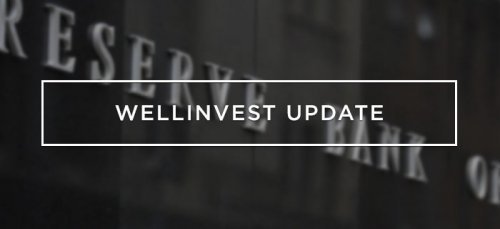
Statement by Philip Lowe, Governor: Monetary Policy Decision
At its meeting today, the Board decided to lower the cash rate by 25 basis points to 0.50 per cent. The Board took this decision to support the economy as it responds to the global coronavirus outbreak.
The coronavirus has clouded the near-term outlook for the global economy and means that global growth in the first half of 2020 will be lower than earlier expected. Prior to the outbreak, there were signs that the slowdown in the global economy that started in 2018 was coming to an end. It is too early to tell how persistent the effects of the coronavirus will be and at what point the global economy will return to an improving path. Policy measures have been announced in several countries, including China, which will help support growth. Inflation remains low almost everywhere and unemployment rates are at multi-decade lows in many countries.
Long-term government bond yields have fallen to record lows in many countries, including Australia. The Australian dollar has also depreciated further recently and is at its lowest level for many years. In most economies, including the United States, there is an expectation of further monetary stimulus over coming months. Financial markets have been volatile as market participants assess the risks associated with the coronavirus. Australia's financial markets are operating effectively and the Bank will ensure that the Australian financial system has sufficient liquidity.
The coronavirus outbreak overseas is having a significant effect on the Australian economy at present, particularly in the education and travel sectors. The uncertainty that it is creating is also likely to affect domestic spending. As a result, GDP growth in the March quarter is likely to be noticeably weaker than earlier expected. Given the evolving situation, it is difficult to predict how large and long-lasting the effect will be. Once the coronavirus is contained, the Australian economy is expected to return to an improving trend. This outlook is supported by the low level of interest rates, high levels of spending on infrastructure, the lower exchange rate, a positive outlook for the resources sector and expected recoveries in residential construction and household consumption. The Australian Government has also indicated that it will assist areas of the economy most affected by the coronavirus.
The unemployment rate increased in January to 5.3 per cent and has been around 5¼ per cent since April last year. Wages growth remains subdued and is not expected to pick up for some time. A gradual lift in wages growth would be a welcome development and is needed for inflation to be sustainably within the 2–3 per cent target range.
There are further signs of a pick-up in established housing markets, with prices rising in most markets, in some cases quite strongly. Mortgage loan commitments have also picked up, although demand for credit by investors remains subdued. Mortgage rates are at record lows and there is strong competition for borrowers of high credit quality. Credit conditions for small and medium-sized businesses remain tight.
The global outbreak of the coronavirus is expected to delay progress in Australia towards full employment and the inflation target. The Board therefore judged that it was appropriate to ease monetary policy further to provide additional support to employment and economic activity. It will continue to monitor developments closely and to assess the implications of the coronavirus for the economy. The Board is prepared to ease monetary policy further to support the Australian economy.
2020
Oh! The Markets

“More than $130 billion wiped off ASX as coronavirus bloodbath continues”
“ASX faces worst week since GFC”
Oh dear, here we go again - the end of the World is nigh!
BUT ISN'T IT NICE TO KNOW that if your investments (including your Superannuation or Pension Fund) have been wisely structured to generate INCOME (from share dividends), rather than gambling on Capital Gains, then your income is not under threat?
It’s as Simple as This...
Dividends are paid PER SHARE.
They are NOT paid according to the SHARE PRICE.
So, markets rise, markets fall. But the number of shares you own stays the same.
Falling - or rising - share-prices doesn’t change the number of shares you (or your Super or Pension fund, on your behalf) owns.
Worth Repeating...
Dividends are paid PER SHARE.
Whilst it may transpire to be the case that some companies may have their profits trimmed and consequently have less to pay to their shareholders, others may actually benefit from the downturn. For example, building materials companies are booming following the devastation of the recent bushfires and floods, as rebuilding gets underway. Commercial opportunities abound in every situation.
It is not the purpose of this brief article to discuss the coronavirus outbreak, but simply to send a note of calm and caution.
Doubtless, markets will recover anyway, as they inevitably do. It’s in the nature of our advanced economy, and those of the developed World.
In the meantime, as said, your Investment Income remains safe and secure.
Best Wishes,
Your Team at Wellings & Associates
